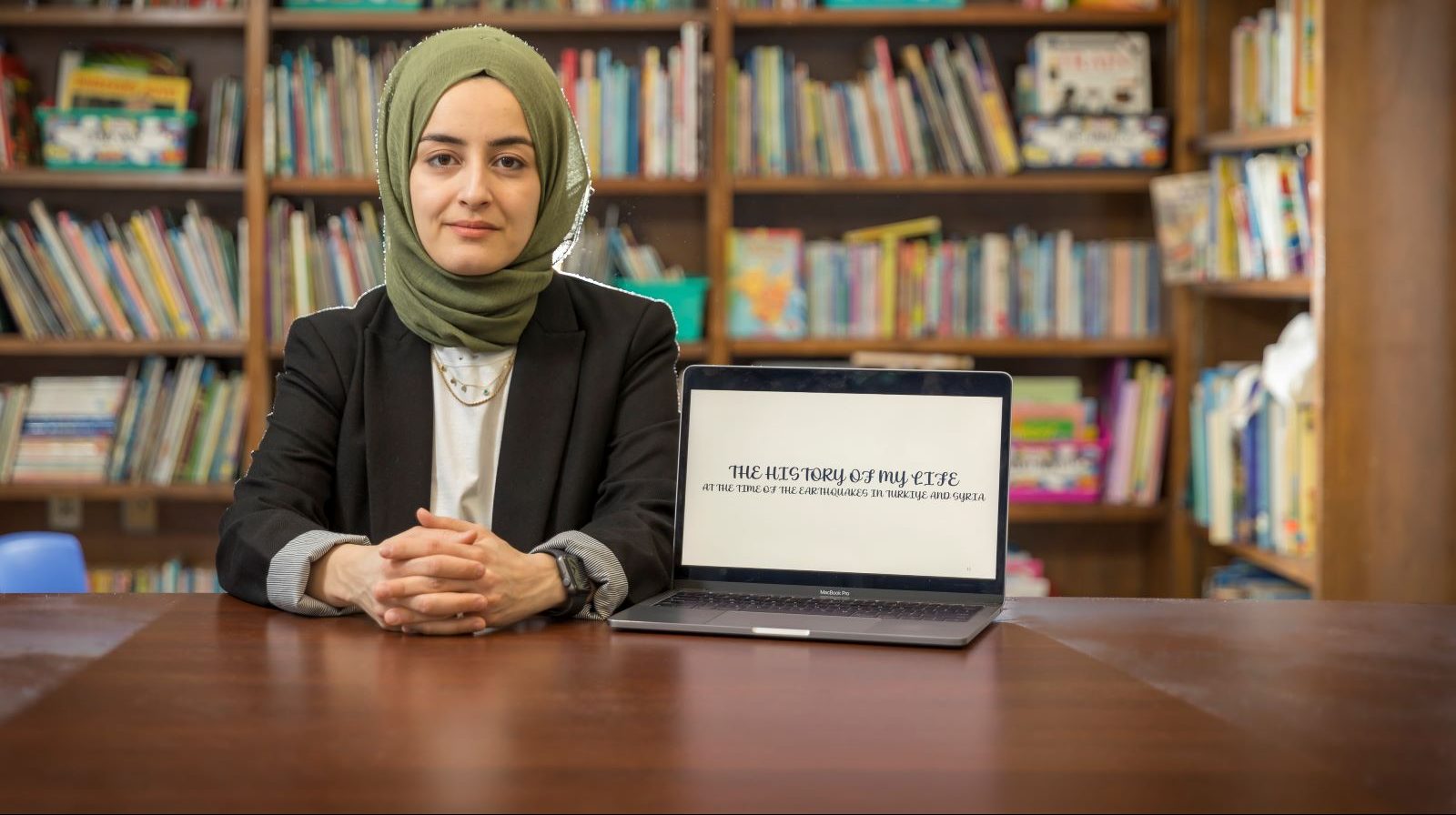<< Back
IOL Doctor Creates Trauma Workbook for Children in Turkey

March 30, 2023
Fear set in when a flurry of texts from medical school friends exploded on her cell phone late on February 6, alerting Hanife Akal, MD, to the devastating earthquake that just rocked her native Turkiye (Turkey).
It took days for Dr. Akal, a child psychiatry fellow at the Institute of Living (IOL), part of the Hartford HealthCare Behavioral Health Network, and her husband to connect with assorted relatives and friends living around the country. Although thousands of people died in the earthquake and rippling aftershocks, their family members and friends were safe. Some were temporarily displaced, others were left homeless. But they were safe.
That’s when the behavioral health practitioner side of her kicked in and she thought of the children affected by the terrifying natural disaster.
“My heart went out to the children over there and I wanted to help them and be part of their healing,” Dr. Akal says. “It’s hard to process this kind of loss.”
While Turkiye (Turkey) struggles to create a foster care system and its orphanages overflow with children left parentless by the earthquake, she explains that caregivers need tools to help them grapple with the loss they’re experiencing. The workbook – which she is creating with Alexandra Harrison, MD, associate professor of psychiatry (part0-time) at Cambridge Health Alliance and is sponsored by the organizations New Beginnings and Supporting Child Caregivers – has become the academic project for her final year of fellowship.
The pages contain guidance for caregivers of children and space for children of all ages to draw pictures representing their feelings and situations. Caregivers, she stresses, can be any adults caring for children, including family members, teachers, volunteers and professionals.
“We know it’s important to provide brief and simple information to the caregivers in a developmentally appropriate manner,” Dr. Akal explains.
Completed workbooks can serve as reminders – or keepsakes – of the earthquake experience later on. While very young children can draw and tell their caregivers what they’re feeling, older children can fill the pages out themselves. There are lines for basics like name and age, then others for them to describe their emotions or talk about what happened to their families and friends. Coloring pages contain hopeful things blended with reality, such as a cracked road with cars and birds nearby.
“A disaster like this can be very disorganizing. Encouraging the child create a story is a powerful way to help them make more adaptive sense of their experience. This workbook is a structured opportunity to tell their story,” Dr. Akal says. “It’s designed to help them focus on who they are, what happened to them, how they feel and their future.”
This “disaster psychiatry” was relatively new to her, but interacting with children is her specialty. She was able to confer with Gil Kliman, MD, a world-renowned psychoanalyst who created many guided activity workbooks to help children after tragedies. Her workbooks will be available for free in English, Turkish and Arabic on the websites of both sponsoring non-profit organizations to help as many people as possible.
While she finalizes the workbooks, Dr. Akal has already been able to help providers in Turkiye (Turkey), including her younger sister, a medical student there. Her sister and her classmates were paired with orphans to play their favorite games at a local hospital to help them emotionally as they recovered physically.
“She asked me, ‘What do I do? What do I say?’” Dr. Akal recalls. “I gave her advice. The next day, she told me how mutually beautiful it was to share the moment and be connected with them. Such psychological education is instrumental for anyone in contact with these children.”
Here in the United States, the workbook project has enabled Dr. Akal to focus on helping people suffering at home.
“There’s a feeling of helplessness. You can’t go over because you have work, but you know how much this will affect them, how deep this goes,” she says. “Relationships and the sense of community can be scaffolding in disasters like this, as we work to help them through, help promote resilience.
“It’s something meaningful that I could do, and it’s become rewarding in a way.”